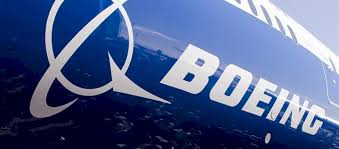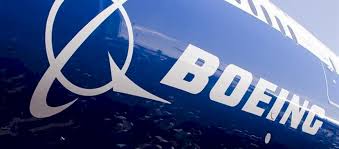
The estimated disruption of the grounded Boeing 737 Max planes globally has forced the United States based plane maker to take an after-tax charge of $4.9 billion in the second quarter. All 737 Max planes of the company –one of its fastest selling ones, ground were grounded all across the world after two fatal crashes involving the plane – the last of which was in March this year.
The company has taken the charge to account for “potential concessions and other considerations to customers” as well as because of the impact of continued lower production of he planes, Boeing said in a statement. Airlines across the world that has 737 Max planes in their fleet have extended their flight cancellations until November.
Boeing said that it will suffer a $5.6 billion reduction in revenue and pre-tax earnings in the second quarter because of the hit.
The charge was apparently not a cause for concern for Boeing investors as its shares rose 2 per cent in after-hours trading following the announcement which, according to Morgan Stanley analyst Rajeev Lalwani, shows that Boeing investors do not mind the size of the charge and the production plans of Boeing. These information was released by Boeing about a week before its is scheduled to announced its second quarter results.
“The company showed a degree of confidence in a return to service before year-end and getting up to 57 per month on 737 production in about 12 months, which investors were increasingly skeptical of,” Lalwani said.
This crisis with the 737 Max began with the crash of a plane of the same model belonging to the Ethiopian Airlines in March this year. It was preceded by another fatal crash of a 737 Max plane in Indonesia just five months ago. A total of 346 people were killed in both the crashes.
This incidents have not only cause financial losses to the Chicago-based plane maker but has also severely tarnished its image in terms of flight safety.
“We are taking appropriate steps to manage our liquidity and increase our balance sheet flexibility the best way possible as we are working through these challenges,” Boeing Chief Financial Officer Greg Smith said in a statement.
Boeing chief executive Dennis Muilenburg said in a tweet that the company remains focused on safely returning the 737 Max to service, Boeing chief executive Dennis Muilenburg said in a tweet. “The MAX grounding presents significant challenges for our customers, company and supply chain,” he tweeted.
The planned launch of a new Boeing plans has been pushed because of the crashes and the grounding of the 737 Max planes. According to reports, launch of the new plane is not likely to be give a green light by Boeing’s board unless the financial exposure because of the 737 Max crisis is clear to them.
The 737 Max crisis has also hit the production of the company with the company being forced to cut down on the monthly production rate of single-aisle aircraft in the Seattle area from 52 to 42.
(Source:www.montrealgazette.com)
The company has taken the charge to account for “potential concessions and other considerations to customers” as well as because of the impact of continued lower production of he planes, Boeing said in a statement. Airlines across the world that has 737 Max planes in their fleet have extended their flight cancellations until November.
Boeing said that it will suffer a $5.6 billion reduction in revenue and pre-tax earnings in the second quarter because of the hit.
The charge was apparently not a cause for concern for Boeing investors as its shares rose 2 per cent in after-hours trading following the announcement which, according to Morgan Stanley analyst Rajeev Lalwani, shows that Boeing investors do not mind the size of the charge and the production plans of Boeing. These information was released by Boeing about a week before its is scheduled to announced its second quarter results.
“The company showed a degree of confidence in a return to service before year-end and getting up to 57 per month on 737 production in about 12 months, which investors were increasingly skeptical of,” Lalwani said.
This crisis with the 737 Max began with the crash of a plane of the same model belonging to the Ethiopian Airlines in March this year. It was preceded by another fatal crash of a 737 Max plane in Indonesia just five months ago. A total of 346 people were killed in both the crashes.
This incidents have not only cause financial losses to the Chicago-based plane maker but has also severely tarnished its image in terms of flight safety.
“We are taking appropriate steps to manage our liquidity and increase our balance sheet flexibility the best way possible as we are working through these challenges,” Boeing Chief Financial Officer Greg Smith said in a statement.
Boeing chief executive Dennis Muilenburg said in a tweet that the company remains focused on safely returning the 737 Max to service, Boeing chief executive Dennis Muilenburg said in a tweet. “The MAX grounding presents significant challenges for our customers, company and supply chain,” he tweeted.
The planned launch of a new Boeing plans has been pushed because of the crashes and the grounding of the 737 Max planes. According to reports, launch of the new plane is not likely to be give a green light by Boeing’s board unless the financial exposure because of the 737 Max crisis is clear to them.
The 737 Max crisis has also hit the production of the company with the company being forced to cut down on the monthly production rate of single-aisle aircraft in the Seattle area from 52 to 42.
(Source:www.montrealgazette.com)














